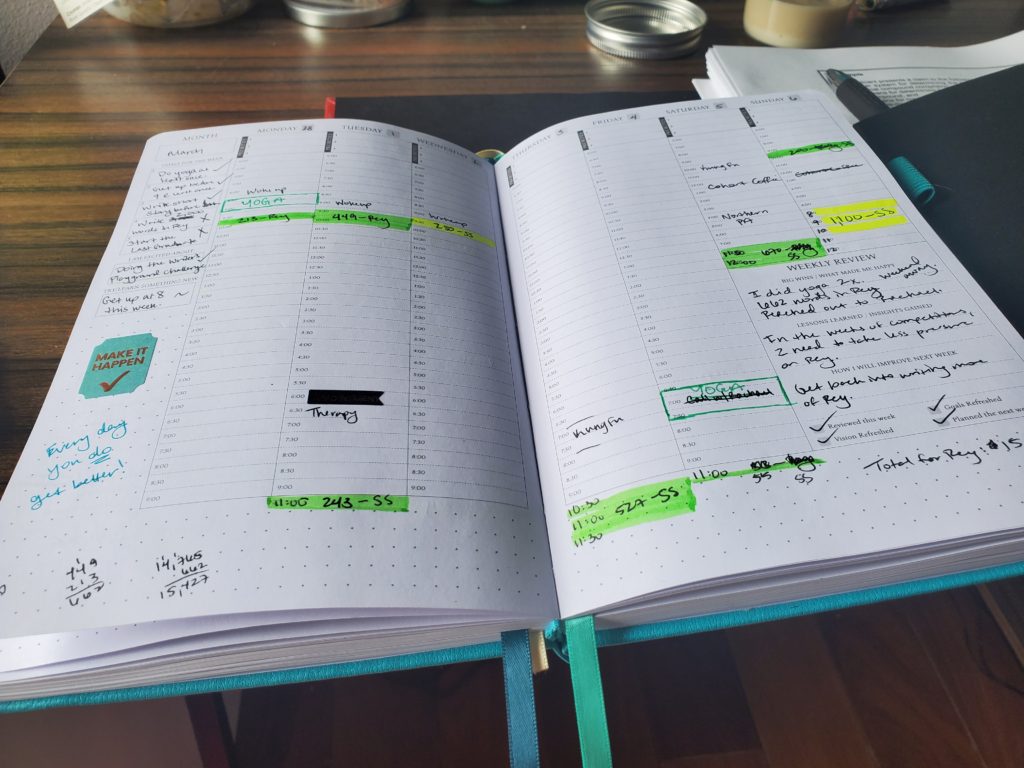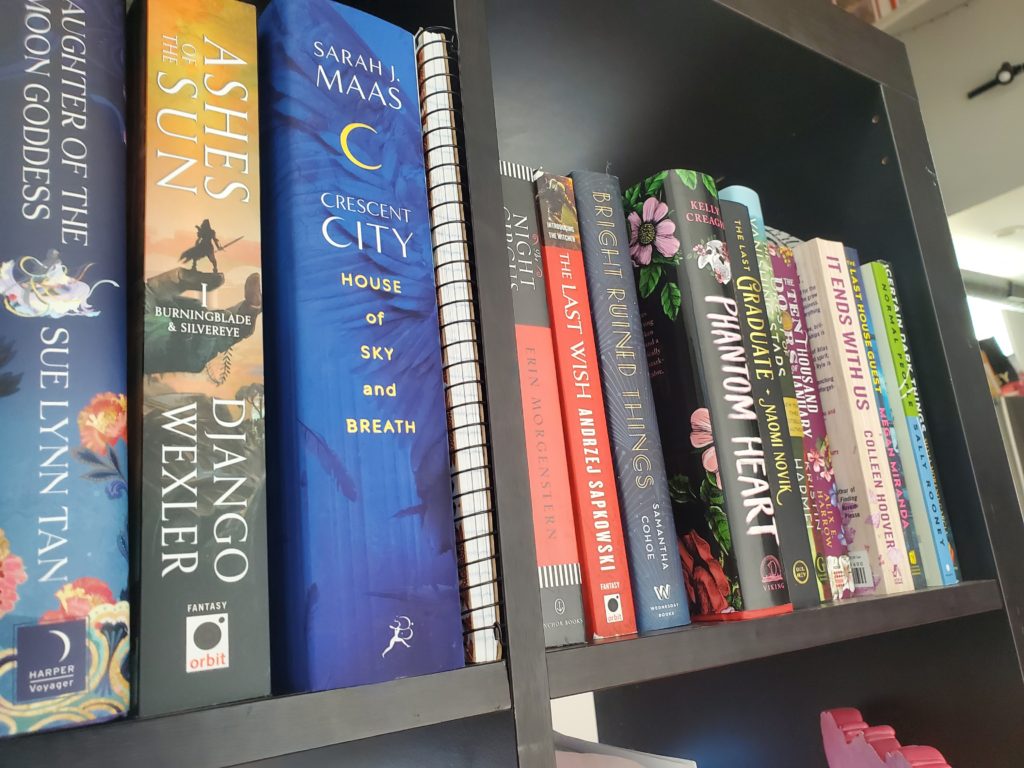
Finding Time
Finding time these days can feel nearly impossible.
Funny enough, or not funny at all, I had planned to post this well before I ended up posting it. Heh heh.
Maybe you can relate. Or maybe you cannot fathom being late with anything. Although if you fit in this last bucket, I am not sure how much I can believe you. There must have been something you have been late with.
Well, either way, time can be hard to find.
I feel like I am in this ever-elusive battle with finding more time. How am I supposed to work all day, do schoolwork, write a novel, and keep up with reading? It absolutely blows my mind that the world functioned pre-pandemic with people going into the office. I work from home, and I still do not have enough time.
Never mind finding time to write for my website.
I would like to start by taking you on a journey. By the end of it, I hope we can figure out how to solve the neverending riddle of time.
Here is an overview of our journey:
- Acknowledging Time
- Goal Setting
- Dedication
- Creating & Following a Routine
- Doubt
Acknowledging Time
The first step in identifying any problem is to acknowledge it. Or at least that is what people say.
So, here I am: I have a problem finding time.
Now, let’s break this down a bit. What the hell does that even really mean?
Well, I think the real problem is that I overcommit. It is so much easier to say yes than it is to say no. At work, for instance, if someone asks me to solve a problem, I will say, “Yeah sure, I will help you with that.” Which can lead to a divergence of as small as a few minutes up to as long as thirty plus minutes.
If you are a creative or someone who engages in challenging work tasks, I bet your alarm bells are going off at the thought: “But Nicholette, that disrupts your flow!”
Now some of you might be asking, “What’s a flow?”
I am glad you asked. A flow, in this case, is not talking about liquid flowing through a pipe. And no, we are not talking about viscosity and laminar versus turbulence. In fact, if that is what you are here for, you are very lost. Go try this instead.
No, in this case, flow is the flow state.
And we can consider all those pings I get from random people to be blockers inhibiting my ability to reach a flow state. Basically, blockers are the things screaming for your attention and preventing you from doing whatever you set about doing for the day.
A flow state can take as long as 30 minutes to get into, so that is why it is a problem if I answer Fred’s every beck and call.
So, yeah, maybe I should have said no to Fred. And maybe I should not have been like, “Yeah, let’s work full-time, do school part-time, write that book finally, try to win a writing contest, AND let’s get back on that blogging train and entertain the good people of the world!”
Maybe I overcommitted just a tad.
If you are interested in exploring more on flow state and trying it yourself: I recommend throwing this on to zone out.
Goal Setting

I mentioned in my previous post that I started a Legend Journal that logged my goals for the year, month, week, etc. back in January. I started that because I began to crack like one of those porcelain dolls. Each thing I committed to started pushing in on my brittle points.
There are a few important things I learned:
- It really helps to break down big goals into little ones.
- Keeping a goal/planner journal helps keep everything in one place.
- Seeing everything in one place helps you feel in control.
- Celebrating even little milestones can lead to celebrating big ones.
- It is simultaneously extremely motivating and demotivating.
And while my last point is on the border between good and bad, I will say goal setting really helped me find time in my days, weeks, and months. Most importantly, goal setting helped me realize how well I was already using my time and why I could not always meet what I had set out to do. Aka, it really highlighted all that I had overcommitted to.
In your pursuit of finding time and learning how to tackle the million in one things that excite you about the world, try starting with your biggest, all-time goals. Break those down into something you can accomplish in the next year. Then take those and break them into something you can do in three months. All the way until you get to this week. What simple thing can you do this week that will add up and enable you to reach your three-month goal that adds up to your year goal?
I hate goal setting, to be honest, but it has been extremely helpful in keeping my head screwed on straight.
Dedication
It is pretty pointless to set a goal and not follow through on it. What was the point of the goal? Just to set yourself up to feel disappointed?
This is why I see goal setting as a double-edged sword. On one hand, you are giving yourself something to work towards, something to achieve. Without a goal in mind, what are your efforts leading to? How do you know when you have achieved something?
If you set goals for yourself, small ones leading to larger ones, you are setting yourself up to have something to dedicate your time to.
On the other hand, if you set a goal and you come just short of it, it will feel disappointing not to reach it.
I set a goal for myself to reach 24,000 words in my novel in three months. I worked hard at that goal and made steady and gradual progress. In the end, I came just short of my goal. And instead of being hype about the fact that I had made it 94% of the way there, I felt down on myself. I felt like a failure.
But I was really only a few days off from reaching that finish line and pushing past it.
But I had a hard time seeing it that way. Everything I said in defense of myself felt like an excuse:
“Well, you needed to write a lot for school.”
“Work was stressful the past few weeks.”
“You were busy shaping up that one piece for a writing contest. You had to see what you could do.”
“Your mental health hasn’t been that great the last few weeks, but you have been working to improve it.”
I just wouldn’t take any of those excuses.
But I rewarded myself nonetheless. I felt guilty about following through on the prize, a guiltless trip to Barnes and Noble to get the books I had added to a list for a few months.
You know what happened when I followed through on rewarding myself?
I felt amazing. As I pulled these books I had been thinking about for months off the shelves, I smiled as I held the mass of pages in my arms. I even added a few extra books.
The most exciting part about them was that I intended to read them to figure out what these other writers were doing. One dealt with grief: the beginning force in my novel, Rey of Sun. Another came highly recommended by one of my favorite authors, Patrick Rothfuss. Another the newest book in Sarah J. Maas’s newest series. There were a few more, like The Last Wish and The Daughter of the Moon Goddess.

All of them excited me because they held so many possibilities. So much hope. And all that hope made me feel hopeful about my own work.
Going through with the reward reignited that drive and excitement in me that had started to sour, to turn dormant.
I went home that day and started reading right away.
Creating & Following a Routine
I had made it pretty far in that goal. Ultimately, setting small daily goals contributed to larger weekly goals leading to its success.
Do you know how many words a day I had to write to get to 24,000 words in 3 months?
268 words.
That is a manageable goal. I bet you could crank out that many words even if you are not a writer if you wanted to.
Every time I sat down to write, I gave myself a 15 or 20, or sometimes 30-minute window. The time I set depended on the time of day. In the morning, I gave myself a small time window of 15 minutes before work. Often, I would go over that time, but telling myself I only had to spend 15 minutes doing writing made it easier.
Setting these smaller windows took a lot of the pressure off my shoulders. I no longer felt I had to sit there and panic when I realized that I needed to write an entire novel. Instead, I just had to write a few lines of dialogue or description or whatever I wanted.
And then I said, “Okay, let’s do this after I wake up in the morning and before I go to bed at night.”
By giving myself these two times of day, I allowed myself to take as little time as I needed in a day. Some days were busier than others, so all I could manage was the 15 minutes at the end of the day. But picking up where that left off the next day was so uplifting.
The world came alive before my eyes. Characters popped seemingly out of nowhere. And I didn’t have to solve the world’s, or novel’s, problems all at once. I just had to figure out the next step in the puzzle.
Obviously, I wasn’t perfect. That was probably clear from how I didn’t quite hit my goal, but I made great progress either way.
By setting up a clear list of goals, and then creating a manageable action plan to reach them, everything became a little easier over time.
Doubt
Anyone who can find time to set goals, create routines, and reach goals without letting doubts and fears and nasty things creep in, must be some kind of superhuman.
Seriously, if that is you, you should probably go pitch your life to DC and Marvel. They have been making movies about the wrong people.
For the rest of us, keeping ugly thoughts at bay is difficult.
I’m still figuring out how to do that. Or at least how to not let the thoughts stop me from pushing forward anyway. I try not to let some of the louder ones get to me. The ones telling me this is all for not, and I should not even be bothering. That it is all a waste of time.
I am not sure what a “waste of time” would be anymore. But there is a voice at constant war with this negative one, and it tells me to keep going. It tells me I have something to say.
Every day the scales tip to one side more than another, and sometimes it happens multiple times throughout the day.
When I have a clear goal, ironed out some time, and created a routine, I can push through no matter which side the scale is tipped towards.
How will you make it to your goal?